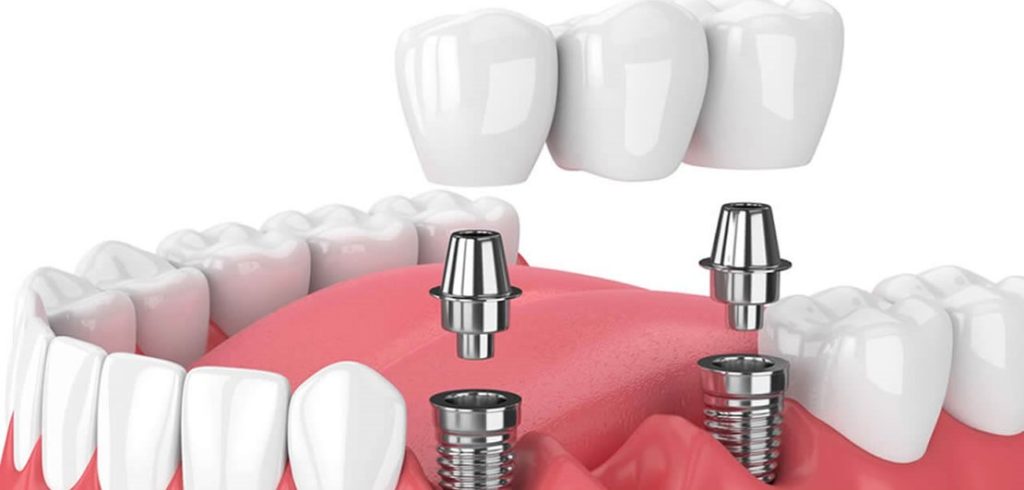What You Need to Know About Implant Treatment
Dental implants are one of the most effective and popular methods for permanently replacing missing teeth. Implants, which mimic the function and aesthetics of natural teeth, offer great advantages in both functional and cosmetic terms. There are important details you need to know before starting implant treatment. Here are the things you need to know about implant treatment:
- What is a Dental Implant?
A dental implant is an artificial tooth root, usually made of titanium, that is placed in the jawbone and replaces missing teeth. The implant functions like a natural tooth thanks to the prosthesis or crown placed on it. Implants offer a wide range of solutions from single tooth deficiencies to complete tooth loss.
- Who is Implant Treatment Suitable For?
Implant treatment is generally suitable for individuals who have completed bone development and whose general health status is suitable. However, some health conditions such as gum disease, diabetes, and heart disease may affect implant treatment. Your dentist will perform a detailed evaluation to determine whether you are suitable for treatment. In addition, additional procedures such as bone grafting may be required for patients who do not have sufficient jawbone.
- How Does the Implant Treatment Process Work?
The implant treatment process usually consists of several stages and can last several months. In the first stage, the dentist places the implant in the jawbone to replace the missing tooth. After this stage, 3-6 months are waited for the implant to fuse with the bone (osteointegration). After the implant fuses with the bone, a prosthesis or crown is placed on it and the treatment is completed. In some cases, a temporary tooth can also be placed, thus providing an aesthetic appearance during the treatment process.
- Advantages of Implant Treatment
- Permanent Solution: Dental implants offer a permanent treatment option thanks to their long-lasting and durable structures. When properly cared for, implants can be used for a lifetime.
- Natural Look and Feel: Implants mimic the aesthetics and feel of natural teeth. They are no different from natural teeth in terms of chewing function and speech.
- Does Not Harm Surrounding Teeth: In bridge treatments, surrounding teeth are used as support and can be eroded. However, implants do not harm surrounding teeth since they function as a single tooth root.
- Prevents Bone Loss: Due to missing teeth, the jawbone may melt and weaken over time. Implants prevent bone loss by settling into the jawbone and ensure the preservation of the jaw structure.
- Are There Disadvantages of Implant Treatment?
Like every treatment, implant treatment may have some disadvantages. First of all, the treatment process can be long and is completed in several stages. In addition, its cost may be higher than other prosthesis and bridge treatments. However, these disadvantages are generally accepted by patients when the long-lasting solutions and natural results offered by the treatment are considered.
- Post-Implant Treatment Care
Paying attention to oral hygiene after implant treatment is very important for the success of the treatment. Dental implants should be cleaned similarly to natural teeth. Tooth brushing, flossing and regular dentist check-ups should not be neglected. Smoking should be avoided in particular to prevent inflammation of the tissues around the implant. Smoking can increase the implant failure rate.
- What is the Success Rate of Implants?
The success rate of dental implants is quite high and is completed successfully at a rate of 95-98 percent. However, the success rate may vary depending on factors such as the patient’s general health, oral hygiene and smoking. With good care, implants can be used healthily for many years.
- Is There Pain During Implant Treatment?
Local anesthesia is used during implant treatment, so you will not feel any pain during the procedure. After the treatment, there may be slight discomfort and swelling, but this will pass within a few days. This process can be easily overcome with painkillers given by your dentist.
- Is Implant Treatment Costly?
The cost of implant treatment may vary depending on the quality of the materials used, the treatment process and additional procedures. Although it may seem more costly than other dental treatments at first, implants may become a more economical option over time when the long-term results and permanent solution they provide are considered.
- Are There Alternatives to Implant Treatment?
Alternative treatment methods such as bridges or dentures can be preferred instead of implant treatment. However, these methods do not offer a solution as permanent and natural as implants. Especially bridge treatment may require the surrounding teeth to be worn down, which may lead to tooth loss in the long term. You can decide which treatment is most suitable for you together with your dentist.
Implant treatment is an excellent method that naturally replaces missing teeth and provides long-term solutions. The treatment process may take some time, a However, the results are extremely satisfactory both aesthetically and functionally. If you have missing teeth and are looking for a permanent solution, dental implants may be the ideal option for you. You can get detailed information by consulting your dentist and achieve a healthy, aesthetic smile!




